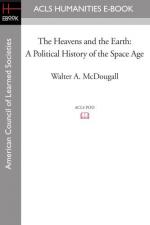|
This section contains 885 words (approx. 3 pages at 400 words per page) |

|
Part 3: Chapter 7, The Birth of NASA Summary and Analysis
Eisenhower had to have some response to the Sputniks; he couldn't just ignore them. Even if it wasn't true that American education, the American satellite program, or the military was inferior, or that there wasn't enough spending by the defense sector or that the spending was wasteful, the administration had to do something. Eisenhower still rejected the impetus for any kind of crash program, opting for sufficiency instead. This basically expanded the Cold War into other areas and resulted in an expanded technocracy.
Eisenhower emphasized the threat of Communist imperialism and downplayed Sputnik in his 1958 State of the Union speech. America was making speedy progress in many of its missile programs but the psychological impact of the Sputniks was not anticipated by the government. The result was new spending in the...
(read more from the Part 3: Chapter 7, The Birth of NASA Summary)
|
This section contains 885 words (approx. 3 pages at 400 words per page) |

|




